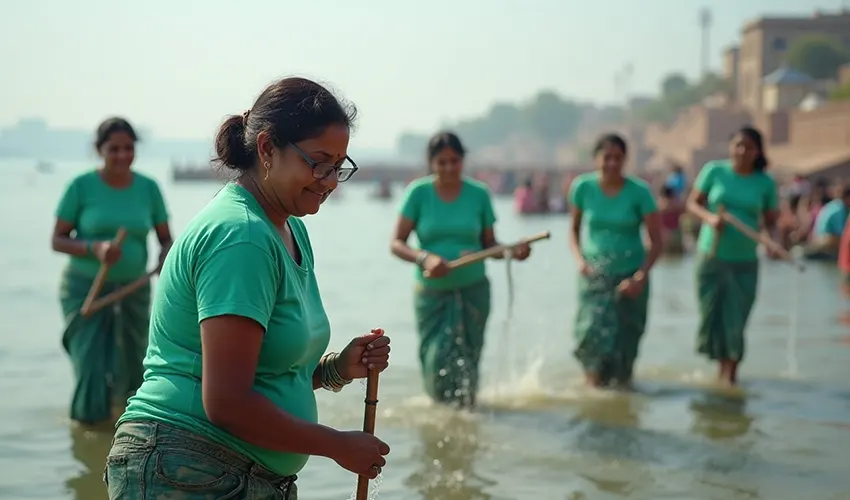15 May, 2025
 Sologenx Foundation
Sologenx Foundation
India's rivers are more than just water bodies-they are lifelines of culture, tradition, agriculture, and biodiversity. Among them, the Ganga and Yamuna hold a special place, both spiritually and ecologically. However, decades of industrial pollution, sewage discharge, plastic waste, and unregulated urbanization have turned these sacred rivers into some of the most polluted water bodies in the world. Despite several large-scale government schemes, the real hope for revival comes from the ground-where people are uniting to reclaim and restore their rivers.
Across India, grassroots movements led by environmentalists, youth groups, local villagers, NGOs, and religious organizations are making a powerful impact. In cities like Varanasi, Kanpur, and Allahabad, groups such as Namami Gange volunteers and river cleanup collectives are removing tons of plastic and organic waste from riverbanks weekly. These are not one-time events-they're consistent, community-driven efforts born out of love and responsibility for nature.
One inspiring example is the work being done by school students and college youth in smaller towns like Rishikesh and Haridwar. Through programs that combine education with action, students organize awareness rallies, plastic collection drives, and eco-workshops that influence families and local businesses to adopt river-friendly practices. Their impact is amplified through social media, spreading messages far beyond the riverbanks.
In Delhi, the Yamuna has long suffered due to untreated sewage and chemical effluents. But in recent years, groups like Yamuna Jiye Abhiyaan and dedicated citizens have been working tirelessly to monitor pollution sources, plant riparian vegetation, and conduct advocacy to demand accountability from civic bodies. These efforts have led to policy discussions and pilot projects aimed at real change.
Importantly, indigenous and rural communities along the rivers, many of whom depend on these waters for their livelihoods, are leading innovative efforts such as bio-sanitization of ghats , natural filtration ponds, and traditional water rituals revived with eco-conscious practices. Women's self-help groups are being trained to lead eco-sanitation programs, while fishermen communities are contributing by reporting illegal dumping and protecting aquatic biodiversity.
Organizations like Sologenx Foundation are partnering with such local communities to provide environmental education, waste management tools, and training to volunteers. Through riverwalks, data collection on water quality, afforestation of riverbanks, and community-driven storytelling, the foundation is helping people connect emotionally and intellectually with the rivers.
Though challenges remain, these grassroots efforts remind us that change flows from the people . While top-down policies may provide resources and direction, it is the bottom-up energy-rooted in community action, awareness, and persistence-that breathes life into India's dream of clean and living rivers.
Before: Toxic foam, plastic waste, sewage overflow.
After: Clean stretches, biodiversity return, community pride, and
cultural revival.
Every individual holds the power to make a difference. Environmental restoration isn't just the work of large organizations-it begins with the everyday choices we make. From planting a single tree to rethinking how we use water and waste, every small action adds up to a larger impact. Sologenx Foundation believes that collective responsibility can lead to meaningful change. Whether you're a student, a professional, a homemaker, or a business leader, there's a way for you to contribute. This section is a call to action-simple, practical steps you can take today to help preserve our planet for generations to come.